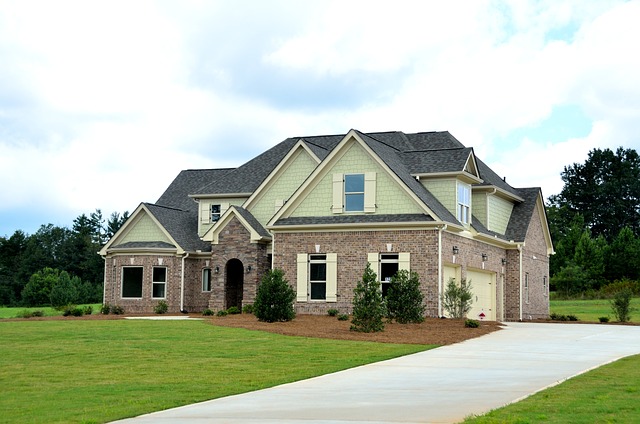Contractor financing fees, influenced by project size, complexity, client creditworthiness, and timeline, play a crucial role in home improvement projects. Understanding interest rates, loan origination fees, permit fees, closing costs, and potential unexpected expenses is vital for both contractors and homeowners to effectively budget and manage cash flow throughout the renovation process, ensuring transparent pricing and successful project completion.
“Unsure about how to budget for your next home renovation project? Understanding and estimating contractor financing fees is a crucial step in making informed financial decisions. This comprehensive guide breaks down the intricacies of these fees, which can significantly impact your home improvement financing. From interest rates to loan origination charges, we’ll walk you through the key factors influencing costs. By the end, you’ll be equipped with the knowledge to navigate the process smoothly and choose the best funding options for your contractor.”
- Understanding Contractor Financing Fees
- Factors Affecting Financing Charges
- Calculating Interest Rates for Home Improvement Loans
- Estimating Loan Origination Fees
- Additional Costs to Consider for Home Renovation Funding
Understanding Contractor Financing Fees

Contractor financing fees are an essential aspect of home improvement projects, offering a solution for contractors and homeowners alike. These fees represent the cost of borrowing money to fund construction or renovation work. Understanding this concept is crucial for anyone involved in the home improvement industry, as it can significantly impact the overall project budget.
For contractors, financing fees are a way to bridge the gap between project costs and payment receipt from clients. It allows them to purchase materials, hire labor, and manage cash flow during the construction phase. These fees are typically charged as a percentage of the loan amount or based on specific terms agreed upon with a financial institution. Homeowners should be aware that these charges can vary depending on various factors, including project size, complexity, and the contractor’s financial partner.
Factors Affecting Financing Charges

Several factors influence the financing fees that contractors charge for home improvement projects. One significant factor is the type and scope of the work involved. Complex or specialized jobs may incur higher fees due to the increased risk, resources, and expertise required. For instance, a contractor specializing in structural renovations or custom design will likely have different financing structures than one focusing on standard remodeling.
Another critical aspect is the financier’s assessment of the client’s creditworthiness. Home improvement loans often involve personal guarantees, so contractors will consider an applicant’s credit history, debt-to-income ratio, and overall financial health. Better credit scores generally lead to more favorable terms, lower interest rates, and reduced financing charges. Additionally, the contractor may factor in the project timeline, as shorter jobs might attract different fee structures compared to longer-term commitments.
Calculating Interest Rates for Home Improvement Loans

When considering home improvement financing for contractors, understanding interest rates is a crucial step in the process. Interest rates on loans are essentially the cost of borrowing money and are expressed as a percentage of the loan amount. For contractors, these rates can vary depending on several factors such as creditworthiness, type of project, loan size, and the lender’s policies.
To calculate the interest rate for a home improvement loan, contractors should evaluate their personal or business credit score. Higher credit scores typically result in lower interest rates since they indicate better borrowing risk to lenders. Additionally, the type of loan (e.g., fixed-rate, adjustable-rate) and the term (length) of the loan can significantly impact the interest rate. Lenders often offer competitive rates for shorter loan terms, so contractors should consider their project timeline when making this decision.
Estimating Loan Origination Fees

When it comes to home improvement projects, understanding loan origination fees is crucial for contractors and homeowners alike. These fees are charges that lenders assess when processing a loan application, covering various administrative tasks and risk assessment. For contractor financing, these costs can significantly impact the overall budget of a project, especially for smaller jobs where profit margins might be tighter.
Estimating origination fees involves considering factors like loan amount, type of improvement, and the lender’s specific policies. In the realm of home improvement financing for contractors, some lenders may charge a flat rate or a percentage of the loan value. It’s important to shop around and compare offers to ensure you’re getting a competitive rate. This process allows contractors to budget effectively and offer transparent pricing to their clients.
Additional Costs to Consider for Home Renovation Funding

When it comes to home renovation projects, understanding all associated costs is crucial for successful budgeting and planning. In addition to the obvious expenses like materials and labour, there are several other factors that contribute to the overall price tag of contractor financing for home improvement projects. One key area to consider is permit fees, which can vary significantly depending on your location and project scope. These permits ensure compliance with local building codes and regulations and often come with associated application charges and inspection fees throughout the renovation process.
Another overlooked cost consideration are closing costs related to any loans or financing agreements. For contractors and homeowners alike, there may be various administrative fees, appraisal costs, and potentially even pre-payment penalties to factor in. Furthermore, unexpected expenses such as site preparation, utility relocation, or unforeseen structural issues can arise, adding to the overall financial burden of a renovation project. Being transparent about these additional costs helps foster trust between contractors and clients and ensures everyone is on the same page regarding budget expectations.
When estimating contactor financing fees for home improvement projects, it’s crucial to consider all associated costs beyond interest rates. By understanding the factors influencing charges and calculating various fees, contractors can provide clients with transparent quotes. This ensures a smooth funding process for much-needed renovations, allowing folks to transform their living spaces without financial hurdles. With the right approach, navigating home improvement financing becomes less of a labyrinthine enigma and more of a symphony of enhancement and growth.
